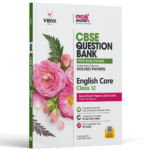How to Excel in Chemistry in the 21st Century: Some Useful Tips
Chemistry and its Importance
The word “chemistry” is derived from the word alchemy, which has been practiced for millennia throughout the world. Chemistry is a fascinating field of study. In simplest terms, chemistry is the science of matter and the changes that take place with the matter. Chemists are people who can transform this matter into amazing things. Some chemists work on cures for cancer while others monitor the ozone protecting us from the sun. Still others develop new materials with tailor-made properties, or new textiles to be used in the latest fashions.
It is only through the wonder of the chemical work that it is sometimes possible to convert a fuel into poison, change a colour, render an inedible substance edible and replace a pungent odour with a fragrant one.
Realise it or not, it is a fact that deep down we are all chemists. Every time we light a match, boil an egg or simply breathe in and out, we perform a chemical reaction. Our bodies grow, develop and function entirely as a result of the chemical processes that go on within them. Chemistry is therefore a very fundamental science that impacts all facets of our lives. Thus, studying chemistry is useful in preparing us for the real world.
Chemistry is often referred to as the central science because it joins together physics and mathematics, biology and medicine, and the earth and environmental sciences. Knowledge of the nature of chemicals and chemical processes provides insights into a variety of physical and biological phenomena. Knowing something about chemistry is worthwhile because it provides an excellent basis for understanding the physical universe we live in.
Growth of Chemistry Knowledge
Chemistry is the most productive of all the sciences. The most fascinating aspect of chemistry is that chemists not only describe and explain our world as it is but are also changing and extending this world through producing or making new chemical substances i.e. matter.
The result is that there has been an exponential growth in the number of chemical substances. For example, while there were some hundreds of chemical substances in 1800, today we have more than 30 million chemical substances. This number is expected to reach 300 million by the year 2050 and 5 billion by the year 2100. Even the number of elements in the periodic table, which were 63 in 1869, has now grown to 118. We may be reaching a saturation stage for periodic table but definitely not for the new chemical substances or compounds. Since each substance has some basic material properties, this has led to the exponential growth of chemical knowledge.


It is, therefore, not surprising that with this unprecedented growth in chemical knowledge, there has been the emergence of many new sub-disciplines of chemistry. These include among others chem-informatics, green chemistry combinatorial chemistry, supramolecular chemistry, phyto-chemistry, food chemistry etc.
Ensuring High Quality in Chemistry Education
Chemistry education in a formal sense means the teaching-learning process of chemistry and involves three important components viz. curriculum/syllabi, teaching-learning and examination. Further there is a constraint of time within which this whole process has to be completed.
The growth of chemistry knowledge poses a serious challenge for chemistry education because this knowledge should ultimately be integrated with the education system to pass it on to the future generations. There is a need to look critically at each of the three components of chemistry education and see what can be done to achieve the goals of chemistry education in the country.
Syllabi: Chemistry syllabus or the chemistry course content is like a menu that we offer to the students and should be very carefully formulated keeping in mind the objectives of the course and the background of the students.
In India, science and mathematics education are compulsory up to class X. If one looks at classes IX and X science course structure of CBSE, one finds that there are five units each in both of these classes besides experimental work. This secondary stage course has been built around six broad themes: Food; Materials; The World of the living; How things work; Moving things, people and ideas and Natural phenomena and resources.
However at +2 level, where chemistry is introduced as a separate discipline for the first time, suddenly chemistry curriculum becomes quite heavy and covers almost all important topics of different branches of chemistry. For example, there are 14 units in Class IX and 16 units in class XII besides experimental work. Now the questions arises: Are all these 30 topics covering all the main branches of chemistry really needed at this level? Is it not too heavy? Do we want to create interest of students in chemistry or want them to run away from chemistry? Further, there is one PGT with specialisation in one branch who teaches all these units. He/she may not be able to do justice with the topics of the remaining branches of chemistry.
Teaching- Learning: Once the syllabus has been finalized, the main responsibility to do justice with it rests with the teacher. At 10+2 level, since students are learning chemistry as a separate subject for the first time, it is the prime responsibility of the teacher to ensure that he is able to stimulate the minds of the students and invoke in them an abiding interest in the subject. This can be done if emphasis is laid on the clarity of concepts. If this is not done, the subject of chemistry becomes a phobia for students and they would always be looking for an opportunity to avoid studying it.
A teacher while teaching a particular topic should try to introduce and build it up in a very systematic and logical manner, trying to answer all the questions that can possibly arise in a student’s mind. Once a student finds that all his queries have been answered and that he has achieved clarity of concepts, it will boost his confidence. All this is possible only if the teacher has done a lot of thinking on the subject and has an insight into the intricacies of the subject. Otherwise, the teacher will never be able to do justice in the class.
Teaching should not be for examination only as is presently the case. Rather it should encourage thinking on the subject and nurture innovation and creativity while retaining the excitement of chemistry. A teacher should motivate and inspire students and should ensure that whatsoever he teaches is

effectively learnt by the students. Learning does not mean rote learning—rather learning is a six-level hierarchy consisting of: knowledge, understanding, application, analysis, evaluation and creation.
Our examination system should also test all these aspects of learning. If students are trained to learn along these lines from their school days, they are sure to become creative and innovative later on. In this way we may not have students with +90% marks but we will certainly have students with an in-depth understanding of the subject and creative minds. What we are facing today is the dearth of such minds as the current examination system emphasizes more on rote learning and scoring high marks.
Students too, on their part, should work hard and utilize all their resources effectively if they want to study and learn chemistry. No teacher, no matter how gifted he or she may be, can teach you anything if you are not actively engaged in and responsible for your own learning. It will take persistence, concentration, discipline, patience and lots and lots of practice if you really want to learn chemistry.
Examination: One has to realize the importance of examination in an education system because it ultimately tests the effectiveness of the teaching learning process. A good examination system or assessment system should test genuine understanding of the subject and not mere rote learning. This is very important that teachers take extra precautions while setting question papers or while assessing students because it’s very rightly said that assessment drives learning. The way you will start assessing your students, students will start learning in that way. A simple example – for students who appear in CBSE class XII and for those students who appear in joint entrance examination for IITs – the methods of assessment are totally different. In our schools, each topic is taught in isolation as if it has nothing to do with the rest whereas in IITs and in other examinations in any question different concepts are tested. One should therefore have a holistic understanding of the subject as chemistry like science is ultimately unified. Therefore one has to be very careful while setting a question paper. As a matter of fact, assessment process needs to made much more scientific to encourage multiple skills of the students. From the year 2020 CBSE has decided to revamp the examination pattern for class X and XII from the present rote learning based questions to problem solving and analytical thinking based questions. This is indeed a welcome step towards improving the quality of education.

ICT in Chemistry Education
ICT indeed can also play a pivotal role in enhancing the quality of chemistry education in the country. Traditional classroom teaching, as we all know, is basically a talk-and-chalk method. Howsoever bright a teacher may be, this method of teaching does have certain limitations in the sense that many complex

concepts cannot be well explained just on the board and one does feel that had there been some technological aids, teaching and learning could have been more effective.
Besides, there is also pressure on the teacher to finish the syllabus on time and, therefore, even though a teacher wants his students to acquire an in-depth understanding of the subject, it cannot be accomplished for want of time. Added to this are other factors like heterogeneous group of learners and the poor teacher-student ratio. The result is that the education system in the present form cannot meet the demands of growing needs for quality education.
ICT can help in overcoming these limitations by supplementing the present conventional mode of teaching-learning with e-learning and Massive Open Online Courses (MOOCs). This ICT-enabled education offers a number of advantages.
ICT, if used creatively, can make a big difference in the way teachers teach and students learn and can help students acquire 21st century skills like digital literacy, innovative thinking, creativity, sound reasoning and effective communication. Integration of ICT with education is therefore very much needed if we really want to create a holistic learning environment focusing on quality, innovation, expansion, excellence and inclusion.
To introduce ICT-enabled education one needs to have high quality multi-media enriched content in different disciplines for various courses including its multilingual conversion, capacity building of teachers and students in ICT skills and state-of-the-art infrastructure along with broadband connectivity for disseminating the content so that it reaches the doorsteps of the learners. The MHRD has given the responsibility of developing MOOCs for 9th -12th classes to CBSE/NCERT/NIOS.
In chemistry education in our country, unfortunately, the focus on experimental work is not as much as it should be. Here also ICT can play a very important role. Use of e-labs and virtual labs in chemistry can make the teaching-learning more greener as it can reduce the use of chemicals. Through e-labs, pre-lab study and revision of experiment can be done by students on screen rather than performing the experiment again and again in the lab.

Due to paucity of time and poor teacher-student ratio, frequent and uniform assessment of students is a big challenge. With the help of ICT, examination and assessments can be done more frequently and uniformly with immediate results. Analysis of testing and individualized feedback can be given, so that the weak concepts can be studied again.
Online-testing initially no doubt requires large infrastructural investment, but is cost-effective in the long run and can help in meeting the challenge of conducting examinations for a very large number of candidates.
ICT is going to play a very major role in enhancing the quality of chemistry education in the country in the 21st century. ICT-enabled chemistry education has the potential to alter the face of chemistry education in the country by empowering the teaching-learning and examination process.
Career options for Chemistry Students
A qualification in chemistry opens the doors to a wide range of careers to choose from, both in and out of the lab.Those keen in chemistry after 10+2 can opt for B.Sc (Hons) Chemistry programme at entry level to give a good start to their career.
Training in chemistry is highly recommended for many industrial positions; is needed for science teaching and is also required for jobs in public sectors and management. Today, both public and private domains draw high management echelons from graduates with chemistry background. Undoubtedly, a Bachelor’s degree in Chemistry opens extensive career options; however, your employment opportunities depend on how far you have taken your education in chemistry (see Box).
Skill set required
Chemistry learning requires “out of the box thinking”, careful observation, problem solving skills, numeracy, creativity, good communication skills and data analyzing abilities.
| Second degree* | Sector/Organisations | Work title/description |
|---|---|---|
| None | •Pharmaceutical & other chemical industries • Business promotional centres • Governmental/industrial labs • Banking and other related sectors |
• Medical/sales representative • BPO executive • CDS, civil service officers, etc. • Lab attendant/technician |
| B.Ed | • Schools | • Teacher (TGT) • Counsellor, Academic Coordinator • Education officers after acquiring M.Ed degree |
| MBA | • Multinationals and corporate sectors | • Sales, HR, and marketing managers |
| MCA | • IT industry (generic and domain specific) • Public and private sector undertakings |
• Software developers • Web and server hosting& management etc. |
| M.Sc (Chemistry) |
• Govt • Universities/colleges • Industries • Scientific laboratories and research organisations: DRDO, DAE, CSIR, BARC, TIFR etc. • Telecom cos., etc • E-Learning cos. |
• Analysis, testing, Quality control specialists • Scientist (R&D) • Teachers and researchers • e-Content developers in chemistry • Civil servants, etc. • Science journalists • Forensic experts |
| M.Sc (chemistry)+ B.Ed |
• Schools | • Teacher (PGT) • Counsellors • Higher education (MEd) |
| M.Sc (chemistry)+ Ph.D |
• Govt • Universities/colleges • Industries • Scientific laboratories: DRDO, DAE, CSIR |
• Analysis, Testing, Quality control Managers • Sr. Scientist (R&D) • Teachers and researchers • Editors of scientific journals • Consultants |
A student of chemistry needs to have a keen interest in the subject and must also develop an ability to work orderly, patiently and methodically. Good documentation skills are also essential as writing and public speaking are a part of chemist’s life. A curious bent of mind and commitment towards work, good grasp of scientific concepts and passion for laboratory work help build a successful research career. The ability to understand and communicate scientific concepts clearly is essential for a career in teaching. Good teaching manifests the amount of thinking done o the subject. Gaining the above mentioned skills opens an arena of career options beyond chemistry for a student from finance to public relations. Thus a chemistry degree will prepare you for a career in chemistry, if that is what you wish, but it will not restrict you to this field and can be a stepping stone to many other opportunities.


 Maxx Marks Class 10
Maxx Marks Class 10 Maxx Marks Class 12
Maxx Marks Class 12 UP Board Books
UP Board Books CC Guide For Class 9
CC Guide For Class 9  CC Guide For Class 10
CC Guide For Class 10  CC Guide For Class 11
CC Guide For Class 11  CC Guide For Class 12
CC Guide For Class 12  NCERT Class 9
NCERT Class 9  Vidya Digest Series
Vidya Digest Series UP Board Textbooks
UP Board Textbooks UP Text Book Class 9
UP Text Book Class 9 UP Text Book Class 10
UP Text Book Class 10 UP Text Book Class 11
UP Text Book Class 11 UP Text Book Class 12
UP Text Book Class 12
 ITI Question Bank
ITI Question Bank B.Ed Year I
B.Ed Year I B.Ed Year II
B.Ed Year II